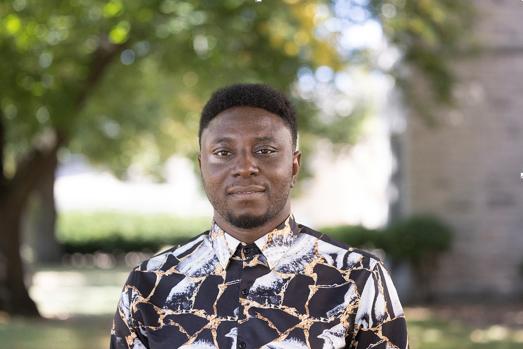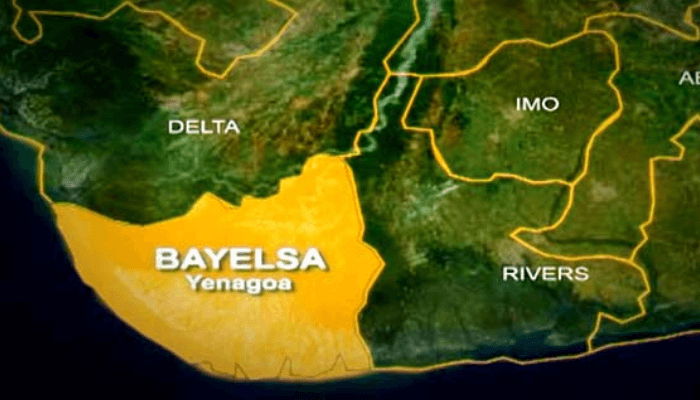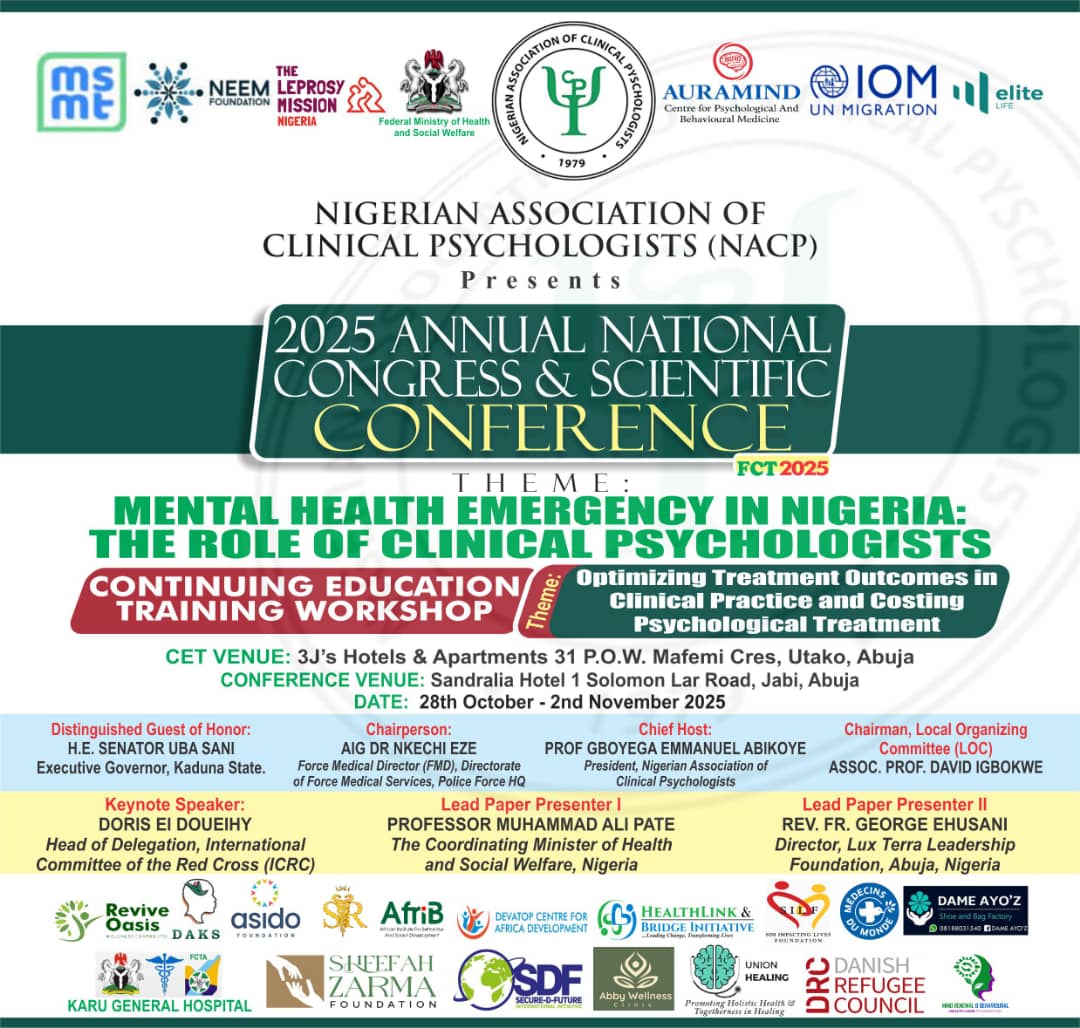Babatola Arogundade remembers the moment everything changed. As an English student in Ondo city, Nigeria, he watched his community suffer in silence as mental health stigma destroyed lives. People with schizophrenia were labeled cursed. Depression was dismissed as weakness. Prayer was prescribed as the only cure.
“That ignorance was devastating,” Babatola recalls from his office at Northern Illinois University, where he is pursuing his doctorate in Counselor Education and Supervision. “I saw brilliant minds lost, families torn apart. I knew then that something had to change.”
That revelation launched Babatola from literature classrooms to the frontlines of mental health advocacy. Today, he’s not just becoming a counselor; he is revolutionizing how counselors are trained, supervised, and supported, particularly those from marginalized backgrounds.
Breaking the Silence
Growing up in Nigeria, Babatola witnessed how religious narratives and cultural taboos created barriers to mental health care. “Seeking professional help was seen as a lack of faith,” he explains. “We needed counselors who understood both the cultural context and the science of mental health.” He began volunteering with Mentally Aware Nigerian Initiative (MANI), first as a counselor, then as a trainer. Every session reinforced his belief that the narrative around mental health in Africa could change. But he needed more tools,leading him to pursue his master’s at Obafemi Awolowo University, where his thesis examined online gaming addiction among youth.
Now at NIU, Babatola’s research focuses on something deeply personal: supervising counselors with multiple marginalized identities. “Traditional supervision looks at identity through a single lens,” he explains. “But we don’t experience the world that way. As a Black, Nigerian, international student, I am all these things simultaneously.”
His findings reveal that counselors with intersecting identities face unique challenges; code-switching between spaces, navigating microaggressions, struggling to find mentors who truly understand their experiences. “We’re told to leave parts of ourselves at the door,” he says. “My work is about reshaping that mold entirely.”
From Two Worlds to One Vision
The transition from Nigeria to American academia brought its own battles. “Every dollar counts differently when you’re international,” Babatola notes. He secured multiple graduate assistantships and won competitive research grants from the North Central Association for Counselor Education and Supervision; validation that his research matters.
Beyond finances, there was culture shock. “The individualistic approach to mental health here was so different from the communal perspective I knew,” he reflects. When told his accent was “too thick” for teaching, he didn’t retreat. Instead, it fueled his commitment to creating inclusive spaces in counselor education.
His recent accolades – Outstanding Graduate Student Award from NIU, Emerging Counselor Educator Award from Illinois Counselor Educators and Supervisors; represent more than personal success. “They show that diverse voices are essential in this field.”
Decolonizing the Classroom
As an instructor for courses on Psychology of African American Experience and Racism in American Culture at NIU’s Center for Black Studies, Babatola practices what he calls “decolonized teaching.”
“I don’t see students who need to be filled with knowledge,” he explains. “I see individuals bringing rich cultural experiences. We explore healing practices from around the world – IFA Practices healing, and Ancestral Wisdom approaches. This isn’t academic exercise; it is preparing counselors to work authentically with diverse populations.” He teaches the dark history of diagnosis, like how enslaved Africans who tried to escape were diagnosed with “drapetomania” – a supposed mental illness causing them to flee captivity. “Understanding this history helps students critically examine current diagnostic practices.”
Youth at the Center
Babatola’s commitment to young people drives much of his work. As a volunteer with Court Appointed Special Advocates (CASA) in Illinois, he advocates for youth in foster care. “These aren’t case files; they are young people with dreams that society has overlooked.”
He recalls one youth who had been through various foster homes. “Everyone saw behavioral problems; I saw a child crying out for stability. Today, that youth is thriving in college.”
Through MANI and his supervision work, he trains counselors specifically for youth mental health. “This generation faces unprecedented challenges – social media pressures, climate anxiety, post-pandemic trauma. They need counselors who understand their world.”
Building Bridges, Breaking Barriers
Babatola’s vision spans continents. In America, he is creating supervision models where counselors with marginalized identities can thrive authentically. In Africa, he is developing culturally responsive training programs.
“The Western model of sitting in an office waiting for clients doesn’t work everywhere,” he emphasizes. “We need counselors who can do community outreach, who understand that mental health conversations might happen at markets, in churches, during communal gatherings.” His current researches bridges his Nigerian and American experiences, offering strategies for counselors working with African diaspora populations. He dreams of “drapetomania” – a supposed mental illness causing them to flee captivity. “Understanding this history helps students critically examine current diagnostic practices.”
Youth at the Center
Babatola’s commitment to young people drives much of his work. As a volunteer with Court Appointed Special Advocates (CASA) in Illinois, he advocates for youth in foster care. “These aren’t case files; they are young people with dreams that society has overlooked.”
He recalls one youth who had been through various foster homes. “Everyone saw behavioral problems; I saw a child crying out for stability. Today, that youth is thriving in college.”
Through MANI and his supervision work, he trains counselors specifically for youth mental health. “This generation faces unprecedented challenges – social media pressures, climate anxiety, post-pandemic trauma. They need counselors who understand their world.”
Building Bridges, Breaking Barriers
Babatola’s vision spans continents. In America, he is creating supervision models where counselors with marginalized identities can thrive authentically. In Africa, he is developing culturally responsive training programs.
“The Western model of sitting in an office waiting for clients doesn’t work everywhere,” he emphasizes. “We need counselors who can do community outreach, who understand that mental health conversations might happen at markets, in churches, during communal gatherings.” His current researches bridges his Nigerian and American experiences, offering strategies for counselors working with African diaspora populations. He dreams of “drapetomania” – a supposed mental illness causing them to flee captivity. “Understanding this history helps students critically examine current diagnostic practices.”
Youth at the Center
Babatola’s commitment to young people drives much of his work. As a volunteer with Court Appointed Special Advocates (CASA) in Illinois, he advocates for youth in foster care. “These aren’t case files; they are young people with dreams that society has overlooked.”
He recalls one youth who had been through various foster homes. “Everyone saw behavioral problems; I saw a child crying out for stability. Today, that youth is thriving in college.”
Through MANI and his supervision work, he trains counselors specifically for youth mental health. “This generation faces unprecedented challenges – social media pressures, climate anxiety, post-pandemic trauma. They need counselors who understand their world.”
Building Bridges, Breaking Barriers
Babatola’s vision spans continents. In America, he is creating supervision models where counselors with marginalized identities can thrive authentically. In Africa, he is developing culturally responsive training programs.
“The Western model of sitting in an office waiting for clients doesn’t work everywhere,” he emphasizes. “We need counselors who can do community outreach, who understand that mental health conversations might happen at markets, in churches, during communal gatherings.” His current researches bridges his Nigerian and American experiences, offering strategies for counselors working with African diaspora populations. He dreams of “drapetomania” – a supposed mental illness causing them to flee captivity. “Understanding this history helps students critically examine current diagnostic practices.”
Youth at the Center
Babatola’s commitment to young people drives much of his work. As a volunteer with Court Appointed Special Advocates (CASA) in Illinois, he advocates for youth in foster care. “These aren’t case files; they are young people with dreams that society has overlooked.”
He recalls one youth who had been through various foster homes. “Everyone saw behavioral problems; I saw a child crying out for stability. Today, that youth is thriving in college.”
Through MANI and his supervision work, he trains counselors specifically for youth mental health. “This generation faces unprecedented challenges – social media pressures, climate anxiety, post-pandemic trauma. They need counselors who understand their world.”
Building Bridges, Breaking Barriers
Babatola’s vision spans continents. In America, he is creating supervision models where counselors with marginalized identities can thrive authentically. In Africa, he is developing culturally responsive training programs.
“The Western model of sitting in an office waiting for clients doesn’t work everywhere,” he emphasizes. “We need counselors who can do community outreach, who understand that mental health conversations might happen at markets, in churches, during communal gatherings.” His current researches bridges his Nigerian and American experiences, offering strategies for counselors working with African diaspora populations. He dreams of establishing mental health training centers in Nigeria that honor healing traditions while incorporating evidence-based practices.
“Imagine counselors trained to work with traditional healers, understanding both DSM diagnoses and cultural expressions of distress,” he envisions.
A Message of Hope
To aspiring counselors from marginalized backgrounds, Babatola offers encouragement: “Your experiences aren’t baggage to leave at the door; they’re gifts that can transform lives. The field needs you – all of you.”
He acknowledges the challenges – microaggressions, systemic barriers, isolation – but emphasizes community and self-care. “Seeking support isn’t weakness; it’s wisdom. Your wellness is revolutionary in a field that often burns out its practitioners.”
Looking ahead, Babatola sees transformation as inevitable. “Every counselor I train, every youth I advocate for, every research paper I publish is a step toward a world where mental health support is accessible, culturally relevant, and effective for everyone.”
“Mental health is not a luxury; it is a human right,” he concludes. “Whether you are in a village in Nigeria or a city in America, you deserve culturally responsive care. The stigma that has silenced us for generations ends with us.”










Leave a Reply